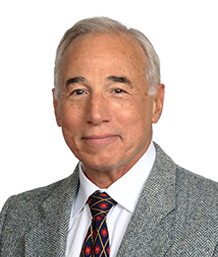Why You Need to Know More Than Your Basic Cholesterol Numbers
There's so much more to heart health than knowing basic cholesterol numbers, like total cholesterol, HDL and LDL. Did you the size and number of your LDL cholesterol particles matter? Learn more about cholesterol in this video from Dr. Alan Reisinger.
TRANSCRIPT
Do you know your cholesterol number? Maybe the numbers for your “good” and “bad” cholesterol?
If you’re over 40, chances are you’ve had a basic cholesterol test – and hopefully, you’ve had this test every year. When the results come back, your doctor can tell you if your cholesterol is in the right range, if you’ve got enough of the good or HDL cholesterol and not too much of the bad or LDL cholesterol.
If your numbers are high, you probably had a conversation together about what you can do to lower your cholesterol — from lifestyle modifications like eating healthier, getting more exercise and losing weight to taking medications like statins.
But what is cholesterol and why do we measure it?
Cholesterol is a waxy substance your body uses to make vitamins and hormones and build cells. Cholesterol comes from two sources. Your liver produces most of the cholesterol in your body, but you also contribute when you eat foods that are high in trans fat, such as partially hydrogenated vegetable oils, fried foods, fast food, store-bought baked goods and non-dairy coffee creamers. Other dietary choices you make — like eating too much fatty red meat and dairy or sweets and simple carbohydrates — can also increase the amount of cholesterol your liver makes.
Unfortunately, too much cholesterol can be bad for you. Excess cholesterol can combine with white blood cells to form plaque inside the walls of your blood vessels. When this happens, the arterial plaque can rupture and block blood flow leading to heart attack and stroke.
It’s not just the amount of cholesterol that matters either. The size and number of the cholesterol particles in your blood stream — especially the bad cholesterol -- matter, too.
There are two types of cholesterol. Small dense LDL particles are generally considered the bad kind because they contribute to the buildup of plaque inside your arteries, which is why you want you to keep this number low. HDL cholesterol, or the good kind, carries LDL cholesterol from your arteries to the liver, where it breaks down and is eliminated from the body. That’s why your doctor may want your HDL numbers to be higher.
But if your LDL is large and fluffy, it’s a lot less “bad” than if your LDL is very small and dense. Smaller, denser LDL particles are considered more dangerous because they are much more numerous in the bloodstream, making it easier for plaque to accumulate and cardiovascular disease to develop. You can even have a high level of small and very small LDL particles while having a normal cholesterol level.
How do you know if your LDL cholesterol is large and fluffy versus small and dense? Your MDVIP-affiliated physician can help you out. Chances are he or she is already testing for this as part of your MDVIP Wellness Program. Ask them about it next time you visit the office.
Cholesterol is just one element that can raise your risk heart disease, the leading cause of death for men and women in the U.S. But it’s an important one. If you don’t know your numbers — and how to manage them —talk to your doctor today.
